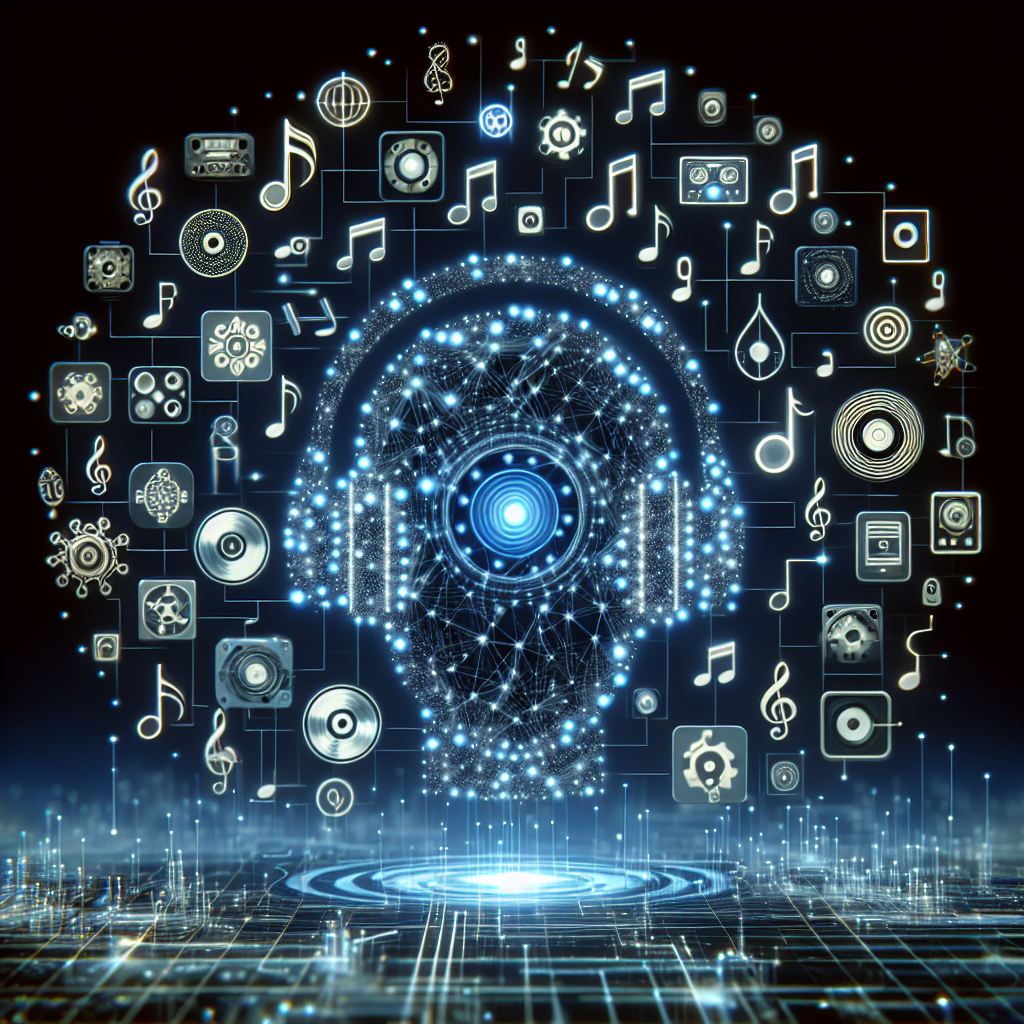In recent years, artificial intelligence (AI) has been making waves in various industries, and the music industry is no exception. With the rise of streaming platforms like Spotify, Apple Music, and Amazon Music, consumers now have access to a vast library of music at their fingertips. AI technology has played a significant role in revolutionizing the way we consume music, from personalized recommendations to creating entirely new music compositions. In this article, we will explore how AI is shaping the future of music consumption platforms and what it means for both artists and listeners.
AI and Personalized Recommendations
One of the most significant ways AI is transforming the music industry is through personalized recommendations. Using machine learning algorithms, streaming platforms can analyze a user’s listening habits and preferences to generate custom playlists and recommendations. This not only enhances the user experience by curating music that aligns with their tastes but also helps artists reach new audiences.
For example, Spotify’s Discover Weekly playlist utilizes AI algorithms to suggest new songs based on a user’s listening history. By analyzing factors such as genre, tempo, and mood, Spotify can create a tailored playlist that introduces listeners to new music they are likely to enjoy. This level of personalization has proven to be highly effective in keeping users engaged and discovering new artists.
AI and Music Composition
AI technology has also been used to create entirely new music compositions. Companies like Amper Music and Jukedeck have developed AI-powered platforms that can generate original music tracks based on specific criteria such as genre, tempo, and mood. This has opened up new possibilities for artists and content creators looking for affordable and royalty-free music for their projects.
Additionally, AI has been used to analyze and generate music in ways that were previously unimaginable. For example, Google’s Magenta project uses machine learning algorithms to explore the possibilities of AI in music composition and performance. From creating harmonious melodies to generating drum patterns, AI has the potential to push the boundaries of what is possible in music creation.
The Future of Music Consumption Platforms
As AI continues to evolve, we can expect to see even more innovations in music consumption platforms. From enhanced recommendation algorithms to new ways of creating and discovering music, the possibilities are endless. Here are some ways AI is shaping the future of music consumption platforms:
1. Enhanced Personalization: As AI algorithms become more sophisticated, we can expect even more personalized recommendations tailored to individual preferences. This will not only help users discover new music but also support emerging artists by connecting them with the right audience.
2. Virtual Concerts and Performances: With the rise of virtual reality (VR) technology, we may see AI-powered platforms that simulate live concerts and performances. This could revolutionize the way we experience music and provide new opportunities for artists to connect with their fans.
3. Collaborative Music Creation: AI has the potential to facilitate collaborative music creation by enabling artists to work together remotely. Platforms that leverage AI algorithms to synchronize and edit music tracks in real-time could revolutionize the way music is produced and shared.
4. Interactive Music Experiences: AI can also be used to create interactive music experiences that engage listeners in new and exciting ways. From immersive audiovisual installations to interactive music videos, AI technology can enhance the overall music consumption experience.
Frequently Asked Questions (FAQs)
Q: Will AI replace human musicians?
A: While AI technology has made significant advancements in music composition, it is unlikely to replace human musicians entirely. AI can assist in creating music and generating compositions, but the emotional depth and creativity that human musicians bring to their craft cannot be replicated by machines.
Q: How can artists benefit from AI in music consumption platforms?
A: AI technology can help artists reach new audiences, receive personalized recommendations, and collaborate with other musicians. By leveraging AI-powered platforms, artists can enhance their visibility and connect with fans in new and innovative ways.
Q: Are there any ethical concerns surrounding AI in the music industry?
A: As with any technology, there are ethical considerations to be mindful of when using AI in the music industry. Issues such as data privacy, algorithm bias, and copyright infringement are important to address to ensure a fair and equitable music ecosystem.
Q: What are some challenges of using AI in music consumption platforms?
A: Some challenges of using AI in music consumption platforms include algorithm bias, data privacy concerns, and the potential for oversaturation of content. It is essential for developers and industry stakeholders to address these challenges proactively to ensure a positive user experience.
In conclusion, AI technology is reshaping the future of music consumption platforms in exciting ways. From personalized recommendations to innovative music composition, AI has the potential to revolutionize the way we create, discover, and interact with music. As the technology continues to evolve, we can expect even more groundbreaking developments that will enhance the music listening experience for artists and audiences alike.

